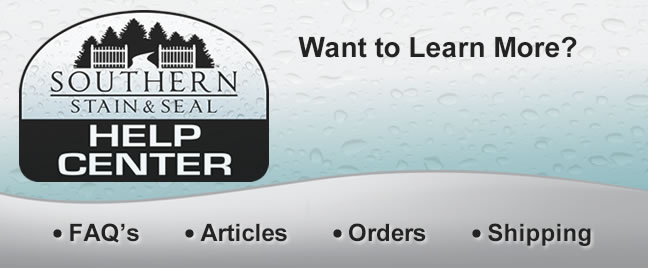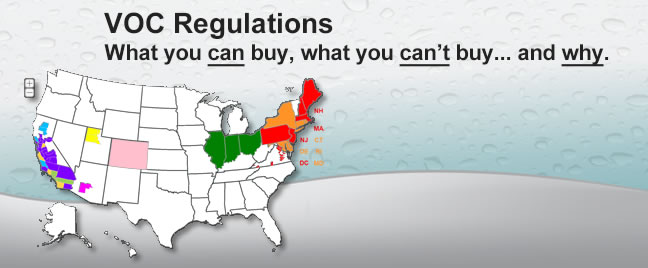Across the country, pavers are quickly gaining popularity for use in all types of outdoor projects. Driveways, sidewalks, patios, pool decks and retaining walls are just a few examples of their versatility. Unfortunately, many hardscape contractors have marketed pavers as a “maintenance free” alternative to concrete and other surfaces. Even though paver construction is quite durable, it is far from maintenance free. Over time, water, moisture, salts and erosion can cause big problems for pavers.
Sealing your pavers will protect and enhance the color of your pavers while stopping water and salt damage to the surface. Certain sealers can also seal and stabilize the sand joints between the pavers, reducing erosion of the sand and weed growth. Efflorescence is also a big problem with pavers. It is caused by moisture moving through the paver and dissolving the natural salts and minerals inside. A paver sealer will greatly reduce water penetration and can often stop the effects of efflorescence completely.
Concrete Pavers
Concrete pavers are produced in an endless number of colors, sizes and compositions. Most are made with gray cement and colored with integral pigments added to the mix. These are the most common type of brick pavers used in outdoor hardscapes such as paver patios, paver driveways and paver sidewalks. Sealing your pavers will protect the pavers and sand joints, while making cleaning much easier. We have sealers available to enhance the color and provide a beautiful wet look, as well as penetrating sealers that protect while leaving a completely natural appearance. Most paver sealers are compatible with most clean, un-sealed concrete pavers, but if your pavers have been previously sealed, you should always test for compatibility before application.
Step 1:
Paver Cleaning and Preparation
As with all projects, proper preparation is the MOST important step! Before a protective treatment can be applied, any non-compatible existing sealers MUST be removed and the surface completely cleaned and de-greased to ensure adhesion and penetration. In most cases, a thorough pressure washing is all that is needed before sealing pavers that are still in good condition. If your pavers have an existing sealer that has failed, turned white, looks milky or is incompatible with the new sealer you want to use, you will need to remove the old sealer before re-sealing. In many cases the cleaning process will also remove the majority of the sand in the joints between the pavers. These sand joints are an important structural part of the paver construction and should ALWAYS be re-sanded before sealing.
- Recommended Products:
 F9 Double Eagle
F9 Double Eagle
Degreaser Nock-Off
Nock-Off
Coating Stripper
WARNING - “Wet Look” Solvent Based Acrylic Sealers
These are nothing more than acrylic concrete sealers that have been re-marketed as a “paver” sealer. You should avoid this type of product at all cost. Although this type of sealer may make your pavers look wet and shiny the day it’s applied, this beauty is usually quickly replaced by disaster. Pavers are a unique substrate that is designed to be porous. This porous nature, combined with the fact that they are sitting in a bed of sand makes moisture a big issue for pavers. Solvent-based acrylics are not designed to hold up to these high levels of moisture. In fact, they are actually very moisture sensitive and can quickly fail or turn white or milky if applied to pavers with a high level of moisture. Please do yourself a favor and ignore the fake “review sites” just trying to market the products they sell.
Sealing Option 1:
Wet Look Water Based Urethane Sealers
These pure urethanes the next generation of wet-look paver sealers. Although slightly more expensive than the simple acrylics described above, this type of paver sealer is superior in almost every way. Urethanes are two-component products that chemically harden like an "epoxy" after you mix part:A and Part:B together. This makes them much harder, more durable and chemical resistant than simple acrylics. Urethanes are also UV stable and will never turn yellow due to UV exposure. Since these urethanes are also water-based, they offer much easier and safer application, without the need for rollers, pans and flammable solvents. These professional grade sealers come in a concentrate form, apply easily by sprayer, are legal for sale in all 50 states and are compatible for use over many types of existing sealers. Water-based urethanes can also be applied to damp pavers without the risk of turning white. To maintain protection and appearance, this sealer should have a maintenance coat every 3-5 years. Water-based urethanes lock and stabilize sand joints, provide a rich "wet look" color enhancement and gloss varies from semi-gloss to high-gloss depending on the number of coats applied and dilution ratio used. Color can also be added directly to this sealer if a tinted application is needed or desired.
- Recommended Products:
 Trident CAT-5
Trident CAT-5
Sealing Option 2:
Penetrating Paver Sealers
This type of sealer penetrates into the surface, sealing out water and contaminates. Penetrating sealants work 100% below the surface to protect your pavers from within, while still remaining breathable. These sealers do not form a film or change the sheen of the surface. Some such as WB-75 and SB-100 leave a completely natural appearance, while others like Enhancer Shield provide color enhancement for more of that "wet look" many people desire. These are very popular for pool decks, sidewalk sealing and paver waterproofing since they do not become slippery when wet, and can never flake, peel or chip like film-forming sealers. These are very effective, long lasting and offer easy application and maintenance. The life-span and level of protection you get from this type of sealer will depend on the quality of the product you choose. Penetrating sealers should never be applied over an existing sealer, unless the previous sealer was a similar and compatible penetrating sealer. Penetrating sealers will not lock sand joints.
Clay Pavers
Clay or brick pavers are used in many of the same applications as concrete pavers, but are very different in composition. Clay pavers are made of hard, dense fired clay. They are less porous and their color is natural and permanent throughout. Unless you simply MUST HAVE a “wet look” sealer, we highly recommend only using penetrating sealers on clay paver applications.
Step 1:
Paver Cleaning and Preparation
As with all projects, proper preparation is the MOST important step! Before a protective treatment can be applied, any non-compatible existing sealers MUST be removed and the surface completely cleaned and de-greased to ensure adhesion and penetration. In most cases, a thorough pressure washing is all that is needed before sealing pavers that are still in good condition. If your pavers have an existing sealer that has failed, turned white, looks milky or is incompatible with the new sealer you want to use, you will need to remove the old sealer before re-sealing. In many cases the cleaning process will also remove the majority of the sand in the joints between the pavers. These sand joints are an important structural part of the paver construction and should ALWAYS be re-sanded before sealing.
- Recommended Products:
 F9 Double Eagle
F9 Double Eagle
Degreaser Nock-Off
Nock-Off
Coating Stripper
Sealing Option 1:
Penetrating Clay Paver Sealers
This is the type of sealer we recommend for most clay paver sealing applications. This type of sealer penetrates into the surface, sealing out water and contaminates. Penetrating sealants work 100% below the surface to protect your pavers from within, while still remaining breathable. These sealers do not form a film or change the sheen of the surface. Some such as WB-75 leave a completely natural appearance, while others like Enhancer Shield provide color enhancement for more of that “wet look” many people desire. These are very popular for pool decks, sidewalk sealing and paver waterproofing since they do not become slippery when wet, and can never flake, peel or chip like film-forming sealers. These are very effective, long lasting and offer easy application and maintenance. The life-span and level of protection you get from this type of sealer will depend on the quality of the product you choose. Penetrating sealers should never be applied over an existing sealer, unless the previous sealer was a similar and compatible penetrating sealer. Penetrating sealers will not lock sand joints.
- Recommended Products:
 SurfKoat WB 75
SurfKoat WB 75
Penetrating Sealer Enhancer Shield
Enhancer Shield
Penetrating Sealer
Sealing Option 2:
Wet Look Water Based Urethane Sealers
We include this option because some customers demand both a wet-look and gloss sealer for clay pavers. If you MUST HAVE a gloss product for your clay pavers, this is our best recommendation. These pure urethanes the next generation of wet-look paver sealers. Although slightly more expensive than simple acrylics, this type of paver sealer is superior in almost every way. Urethanes are two-component products that chemically harden like an "epoxy" after you mix part:A and Part:B together. This makes them much harder, more durable and chemical resistant than simple acrylics. Urethanes are also UV stable and will never turn yellow due to UV exposure. Since these urethanes are also water-based, they offer much easier and safer application, without the need for rollers, pans and flammable solvents. These professional grade sealers come in a concentrate form, apply easily by sprayer, are legal for sale in all 50 states and are compatible for use over many types of existing sealers. Water-based urethanes can also be applied to damp pavers without the risk of turning white. To maintain protection and appearance, this sealer should have a maintenance coat every 3-5 years. Water-based urethanes lock and stabilize sand joints, provide a rich "wet look" color enhancement and gloss varies from semi-gloss to high-gloss depending on the number of coats applied and dilution ratio used. Color can also be added directly to this sealer if a tinted application is needed or desired.
- Recommended Products:
 Trident CAT-5
Trident CAT-5
















